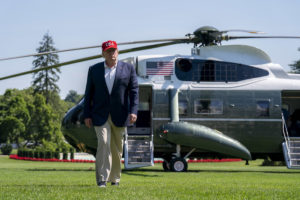
At The American Conservative, Barbara Slavin, director and non-resident senior fellow of the Future of Iran Initiative at the Atlantic Council, adroitly puts the Trump administration’s recent actions regarding Iran into perspective. Slavin writes (abridged):
Pulling back from the brink of a military strike on Iran last week, President Donald Trump announced yet more sanctions on Monday as punishment for the Islamic Republic’s downing of an expensive American drone.
Sanctions—and tariffs—have become the non-military tools of choice for the Trump administration, which has embarked on “maximum pressure” economic campaigns against at least three other nations—North Korea, Venezuela, and Cuba—with additional sanctions on Russia, a trade war with China, and threats of higher tariffs on goods from Canada, Mexico, Japan, and even the European Union.
So far, these measures have produced no great new “deals.”
The Trump administration has refused to provide practical guidelines to European companies seeking to sell non-sanctioned goods to Iran. U.S. officials are also threatening to sanction the Iranian counterpart to INSTEX, a barter vehicle set up by the European Union for trade with Iran that has yet to become operational.
Repeated studies have shown that sanctions only work when they are truly multilateral—not just the result of the dollar’s dominance of the financial system—and when they have a well-defined goal.
Read more here.
If you’re willing to fight for Main Street America, click here to sign up for my free weekly email.




